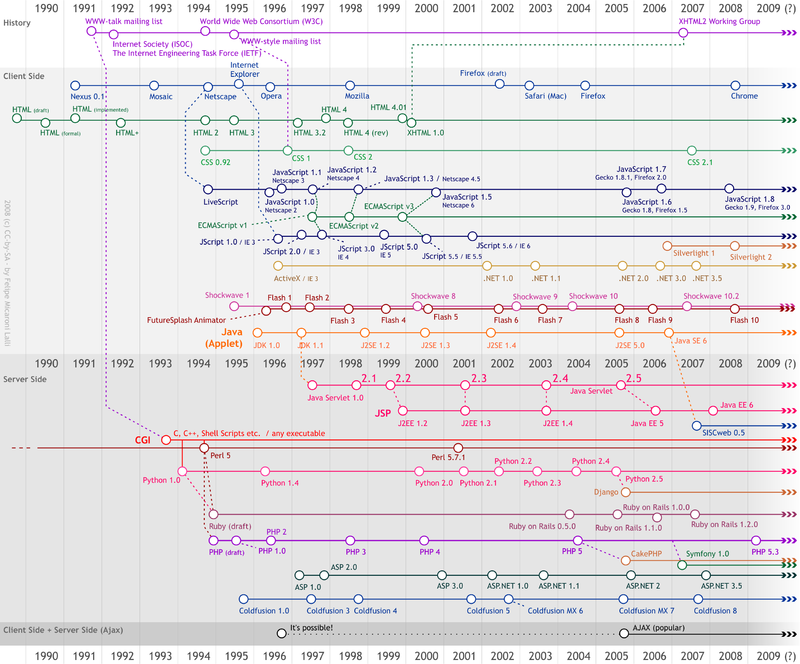Project- PHP Web Application Development
COURTESY :- vrindawan.in
Wikipedia
PHP is a general-purpose scripting language geared toward web development. It was originally created by Danish-Canadian programmer Rasmus Lerdorf in 1993. The PHP reference implementation is now produced by The PHP Group. PHP originally stood for Personal Home Page, but it now stands for the recursive initialism PHP: Hypertext Preprocessor.
PHP code is usually processed on a web server by a PHP interpreter implemented as a module, a daemon or as a Common Gateway Interface (CGI) executable. On a web server, the result of the interpreted and executed PHP code – which may be any type of data, such as generated HTML or binary image data – would form the whole or part of an HTTP response. Various web template systems, web content management systems, and web frameworks exist which can be employed to orchestrate or facilitate the generation of that response. Additionally, PHP can be used for many programming tasks outside the web context, such as standalone graphical applications and robotic drone control. PHP code can also be directly executed from the command line.
The standard PHP interpreter, powered by the Zend Engine, is free software released under the PHP License. PHP has been widely ported and can be deployed on most web servers on a variety of operating systems and platforms.
The PHP language evolved without a written formal specification or standard until 2014, with the original implementation acting as the de facto standard which other implementations aimed to follow. Since 2014, work has gone on to create a formal PHP specification.
W3Techs reports that, as of October 2022, “PHP is used by 74.4% of all the websites whose server-side programming language we know.” PHP version 7.4 is the most used version. Support for version 7.3 was dropped on 6 December 2021.
PHP development began in 1993 when Rasmus Lerdorf wrote several Common Gateway Interface (CGI) programs in C, which he used to maintain his personal homepage. He extended them to work with web forms and to communicate with databases, and called this implementation “Personal Home Page/Forms Interpreter” or PHP/FI.
PHP/FI could be used to build simple, dynamic web applications. To accelerate bug reporting and improve the code, Lerdorf initially announced the release of PHP/FI as “Personal Home Page Tools (PHP Tools) version 1.0” on the Usenet discussion group comp.infosystems.www.authoring.cgi on June 8, 1995. This release already had the basic functionality that PHP has today. This included Perl-like variables, form handling, and the ability to embed HTML. The syntax resembled that of Perl, but was simpler, more limited and less consistent.
Web development is the work involved in developing a website for the Internet (World Wide Web) or an intranet (a private network). Web development can range from developing a simple single static page of plain text to complex web applications, electronic businesses, and social network services. A more comprehensive list of tasks to which Web development commonly refers, may include Web engineering, Web design, Web content development, client liaison, client-side/server-side scripting, Web server and network security configuration, and e-commerce development.

Among Web professionals, “Web development” usually refers to the main non-design aspects of building Web sites: writing markup and coding. Web development may use content management systems (CMS) to make content changes easier and available with basic technical skills.
For larger organizations and businesses, Web development teams can consist of hundreds of people (Web developers) and follow standard methods like Agile methodologies while developing Web sites. Smaller organizations may only require a single permanent or contracting developer, or secondary assignment to related job positions such as a graphic designer or information systems technician. Web development may be a collaborative effort between departments rather than the domain of a designated department. There are three kinds of Web developer specialization: front-end developer, back-end developer, and full-stack developer. Front-end developers are responsible for behavior and visuals that run in the user browser, while back-end developers deal with the servers. Since the commercialization of the Web with Tim Berners-Lee developing the World Wide Web at CERN, the industry has boomed and has become one of the most used technologies ever.
